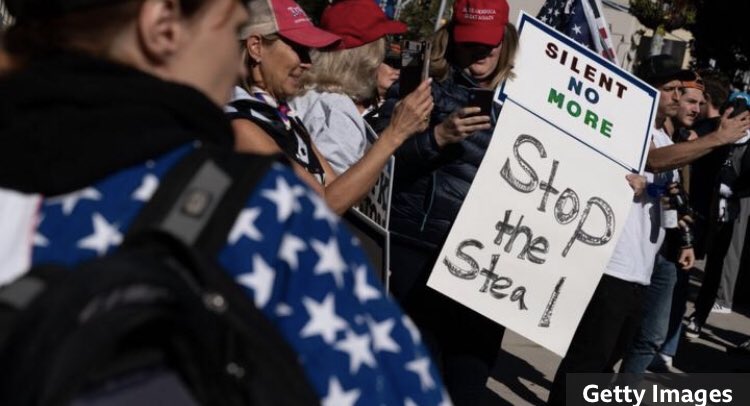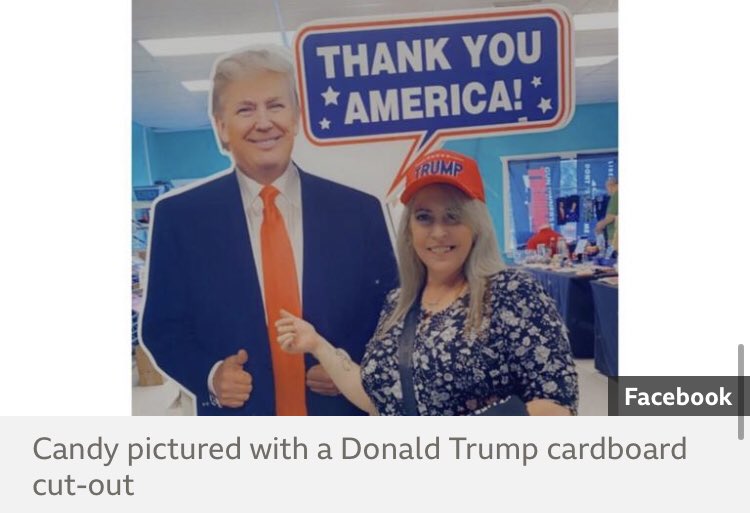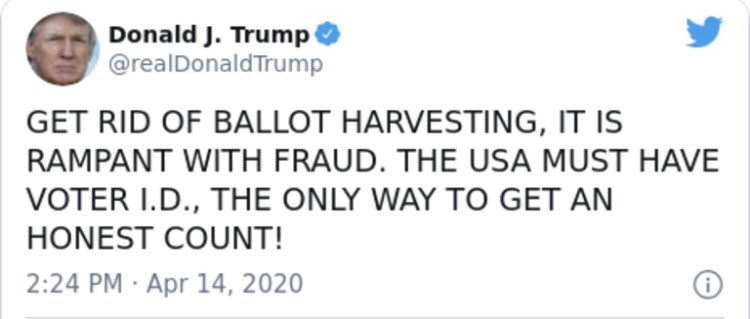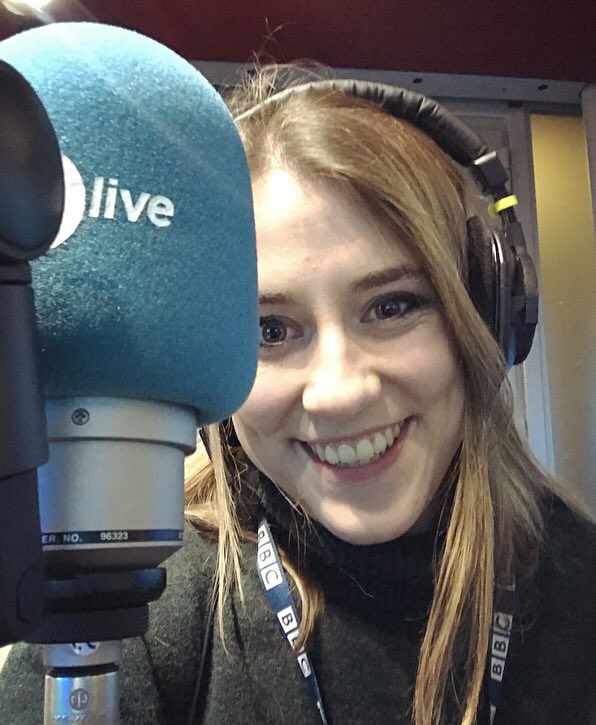
NEW 🚨 Trump alleged "fraud" even while votes were still being counted - the culmination of a strategy months in the making.
Voting disinformation spread online from April - and conspiracies like QAnon made the ground fertile.
I spoke to those impacted.
bbc.co.uk/news/blogs-tre…
Voting disinformation spread online from April - and conspiracies like QAnon made the ground fertile.
I spoke to those impacted.
bbc.co.uk/news/blogs-tre…

Research by the Anti-disinformation unit reveals falsehoods about voter fraud were plugged by influential accounts on social media repeatedly, for months - and spilled into average social media feed.
Listen to this radio prog for more on how @O_Rob1nson conducted her research!
Listen to this radio prog for more on how @O_Rob1nson conducted her research!
https://twitter.com/mariannaspring/status/1330129390773161985
The big fear of many experts who have watched this unfold online is that the deep roots of this voting disinformation could provoke unrest in coming weeks - or erode faith in democracy and trusted institutions for millions.
https://twitter.com/mariannaspring/status/1327748293967876096
In the early hours of a frosty November morning in Connecticut, 49-year-old Candy snuggled into her bed after a long night shift.
She immediately unlocked her phone - and began scrolling through her social media feed, as she does most nights.
She immediately unlocked her phone - and began scrolling through her social media feed, as she does most nights.

But this was different - it was election night. The result was still hanging in the balance. Candy scrolled, catching up on the night's news while waiting for her favoured candidate to speak out.
And just after 1 a.m., he did!
And just after 1 a.m., he did!

Candy agreed. She was frustrated and wanted to act - so when one of her friends invited her to join a Stop the Steal Facebook group, she jumped at the opportunity.
Candy was expecting this. For months allegations of "rigged elections" have been punctuating her Facebook.
Candy was expecting this. For months allegations of "rigged elections" have been punctuating her Facebook.

And she's not the only one.
Research reveals disinformation about voter fraud has been plugged by influential accounts on social media repeatedly, for months - especially Trump.
Between April and the election, he mentioned rigged elections or voter fraud more than 70 times.
Research reveals disinformation about voter fraud has been plugged by influential accounts on social media repeatedly, for months - especially Trump.
Between April and the election, he mentioned rigged elections or voter fraud more than 70 times.

It's not a new theme. Mr Trump made claims of voter fraud back in 2016 - after an election he won.
But this time around, evidence suggests many more people - like Candy - have been seeing unsubstantiated claims all over their social media feeds for weeks
But this time around, evidence suggests many more people - like Candy - have been seeing unsubstantiated claims all over their social media feeds for weeks
Our research found influential right-wing accounts were instrumental in amplifying claims - and frequently retweeted by Trump.
That includes figures with big followings who are now involved in protest movement centred around the unsubstantiated idea of a "rigged" election.
That includes figures with big followings who are now involved in protest movement centred around the unsubstantiated idea of a "rigged" election.
Where did #StoptheSteal come from?
On election night the hashtag sprung up on Twitter after the first of many misleading videos about voter fraud went viral.
The video showed a poll watcher being denied entry to a Philadelphia polling station in what turned out to be a mix up.
On election night the hashtag sprung up on Twitter after the first of many misleading videos about voter fraud went viral.
The video showed a poll watcher being denied entry to a Philadelphia polling station in what turned out to be a mix up.
The Stop the Steal slogan was then used by those setting up large Facebook groups which, since election night, have cumulatively amassed more than a million members.
They have become a hotbed for more misleading videos and false claims - which people like Candy have seen.
They have become a hotbed for more misleading videos and false claims - which people like Candy have seen.
Candy spoke to me about claims about sharpies she’d seen online, about dead voters voting and about ballot dumping.
All of these have turned out to be false, misleading or unsubstantiated - but she genuinely believes them.
Read the debunks here 👉 bbc.co.uk/news/blogs-tre…
All of these have turned out to be false, misleading or unsubstantiated - but she genuinely believes them.
Read the debunks here 👉 bbc.co.uk/news/blogs-tre…
In the background of this election is a series of increasingly popular conspiracy theories suggesting all is suspect.
QAnon and the belief a Deep State rigs everything against Trump may explain in part why these voting rumours spread like wildfire says @wphillips49
QAnon and the belief a Deep State rigs everything against Trump may explain in part why these voting rumours spread like wildfire says @wphillips49
Her greatest fear is not about violence on the streets. She doesn't think people like Candy who join Stop the Steal groups are going to riot because of fake news online.
Instead, Whitney and others worry about the slow, gradual erosion of people's faith in democracy.
Instead, Whitney and others worry about the slow, gradual erosion of people's faith in democracy.
Do get in touch if you’re seeing disinformation and suspect posts about the US election on your social media feeds - or if someone you know has been affected by this!
Email or DM 📧
Email or DM 📧
I've been covering this on air all day - more analysis here!
https://twitter.com/mariannaspring/status/1330871597629108224?s=20
More on this report on @bbc5live now - tune in! 

Plus a quick summary here!
https://twitter.com/mariannaspring/status/1330960935293423618
• • •
Missing some Tweet in this thread? You can try to
force a refresh




